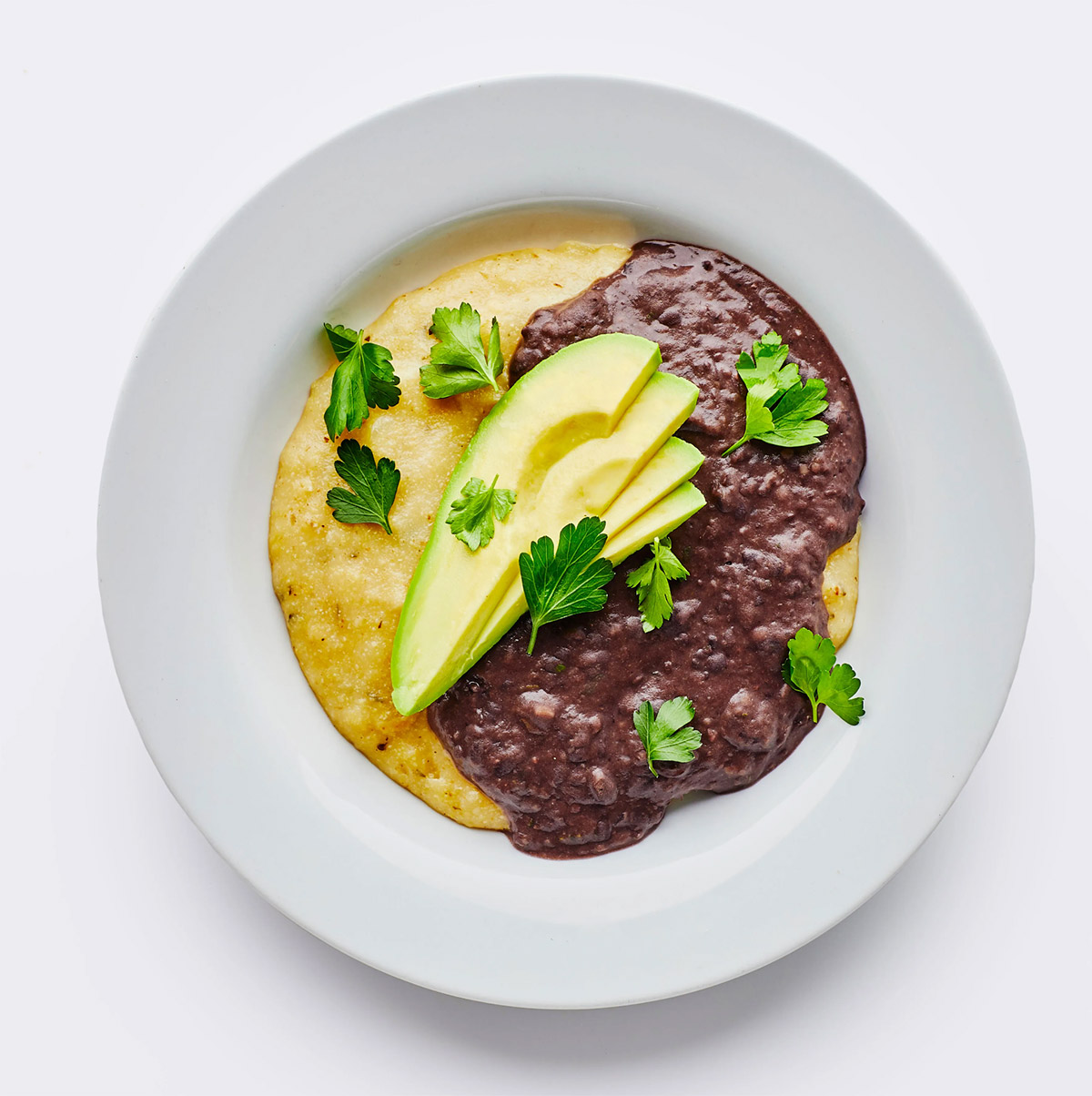Haitian Mayi Moulen Ak Pwa Nwa
Mayi Moulen (Cornmeal) is the Haitian equivalent of grits and is a traditional dish for Haitians. With corn being a major staple in Haiti, it is typically served at breakfast with a side of avocados and served with fish or eggs. Some even mix in black beans to give it an extra protein boost.
I remembered the first time my father made the dish for dinner; I was excited to help him because I had never had it with black beans, and I wanted to know how to cook it in different ways. The flavour of the dish varies depending on the ingredients that are used.
When preparing Mayi Moulen, you’ll need some basic ingredients:
- 1 cup of cornmeal
- 2cloves garlic minced
- 2tablespoon olive oil divided
- salt and pepper to taste
- 1teaspoon better than bouillon vegetable spread
- 2 ½cups water plus a little more for thickening purpose
- 1Roma tomato
When my father mixed other flavours with it, specifically black beans, the cookery becomes a two-step process. The black beans are cooked first.
Step 1:
- Soak beans over night
- The next morning, throw away the soaked water. Add fresh water and place onto burner for cooking
- Check the beans to see if they are ready. To do this, we press them between the thumb and the index finger softly. If the bean is a bit hard when pressed, that means it is not ready yet. Allow for more cooking time.
- When ready, drain the beans to separate them from the liquid.
Step 2:
- On a heated pan, add the oil, garlic, and Roma tomatoes for browning.
- If you want to add bacon to enhance the flavour, add it in now.
- Add the beans, salt and pepper, a teaspoon of bouillon vegetable spread
- Add 2 ½ cups of the liquid (either the liquid from the cooked beans)
- When it comes to a boil, add the cornmeal, and stir
- Reduce the fire and allow to cook for 15 min
- Stir until you’ve reached the desired consistency. As the cornmeal absorbs the water, adjust the water based on your desired thickness.
- Turn off fire and let it rest for a few minutes before serving.
In Haiti, many farmers and athletes start their day off with a huge plate to give them the energy they need to their work done. It is an inexpensive dish.
After dinner as the night falls, full bellied children and adults gathered by the fire to listen to stories told by the elders.

